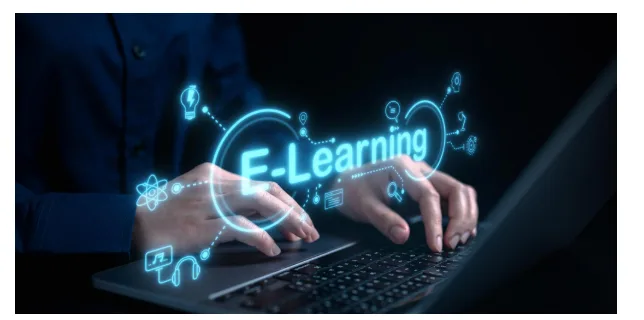E-Learning Evolution 2025: The New Rules of Learning
Education in 2025 looks nothing like it did even five years ago. The traditional classroom with chalkboards, static textbooks, and rigid schedules has given way to dynamic, personalized, and tech-driven experiences. Learners now expect to learn on their own terms—whenever, wherever, and however they want.
At the heart of this transformation stands Udemy, a platform trusted by over 70 million learners and more than 14,000 enterprise clients worldwide. With its massive catalog of 210,000+ courses across everything from AI to yoga, Udemy is shaping the future of how individuals, teams, and organizations learn in the digital age.
Let’s take a deep dive into what’s reshaping online learning in 2025, what’s fading into the past, and what it all means for you.
🔥 What’s In: The Hottest E-Learning Trends of 2025
1. Microlearning: Skills in Minutes, Not Months ⚡
Time has become the ultimate currency. Most learners—especially professionals—simply don’t have hours to sit through traditional lectures. Enter microlearning, a format that breaks knowledge into short, actionable lessons that can be consumed in as little as 5–15 minutes.
- On Udemy, this shows up in courses like “Excel Essentials in 30 Minutes” or “ChatGPT Prompt Engineering Quick Guide.”
- Mobile-friendly lessons mean you can level up during a coffee break, a commute, or even between meetings.
- Microlearning modules often include quizzes, flashcards, and practice tasks, keeping retention rates higher than marathon-style lectures.
Why it matters: People are more likely to stick with learning goals when the process feels digestible and rewarding. Microlearning makes knowledge accessible, even for the busiest learners.
2. Immersive Learning with AR, VR & Simulations 🥽
Learning isn’t just about theory anymore—it’s about experience. Thanks to augmented reality (AR), virtual reality (VR), and advanced simulations, learners can now practice skills in realistic, risk-free environments.
- Imagine medical students performing a virtual surgery before they ever touch a scalpel.
- Engineering students can test designs in a digital lab without wasting materials.
- Corporate employees can participate in VR-based safety drills that prepare them for real emergencies.
Udemy has begun experimenting with AR-ready content and simulation-based modules in fields like medicine, industrial training, and even soft skills. For instance, leadership courses now include scenario-based simulations where learners must make decisions under pressure, building real-world confidence.
Why it matters: Immersive learning creates muscle memory and emotional connection, making the lessons stick far longer than reading a slide or watching a video.
3. Social & Collaborative Learning 🌐
Education is no longer a solo journey. The new generation of learners thrives in communities, where knowledge is shared, debated, and built collectively. Collaborative learning transforms online education into a social experience—boosting engagement and accountability.
- On Udemy, this means Q&A forums, discussion boards, group projects, and even team-based learning paths for businesses.
- Instructors can now create cohort-based courses, where learners move through modules together and exchange ideas along the way.
- Companies using Udemy Business benefit from collaborative spaces where employees learn as a team, applying new skills to shared goals.
Why it matters: Collaboration increases motivation, creativity, and retention. People learn best when they feel part of a group, and platforms like Udemy are making that possible at scale.
4. AI-Powered Personalization 🤖
If there’s one force truly driving the e-learning revolution, it’s artificial intelligence. No two learners are the same—and in 2025, they no longer have to follow identical paths. AI adapts content in real time, tailoring lessons to your unique goals and pace.
- On Udemy, AI recommendation engines act like a personal tutor, guiding you to the right course at the right time.
- Progress tracking tools analyze performance and suggest custom learning paths—whether you’re a beginner exploring coding or an advanced analyst mastering machine learning.
- AI-powered feedback loops help learners fix mistakes quickly, boosting both efficiency and confidence.
Why it matters: Personalized learning saves time, reduces frustration, and ensures that education feels relevant and motivating. Instead of wasting hours on content you already know, you focus only on what truly matters for your growth.
5. Data-Driven Learning Analytics 📊
Knowledge is power, but so is data. In 2025, analytics have become central to how learners, instructors, and businesses measure success.
- Individuals get dashboards that track their strengths, weaknesses, and milestones—helping them stay motivated and accountable.
- Instructors see which modules work and which need improvement, allowing them to tweak content in real time.
- Companies using Udemy Business receive detailed workforce reports: skill readiness, completion rates, and areas where teams need improvement.
For example, a global tech company can see that its workforce lags behind in cloud computing skills, then roll out targeted Udemy courses to close the gap.
Why it matters: Data ensures that learning is not just an activity—it’s an investment. Every lesson is tied to measurable outcomes, making education smarter and more results-driven.
❌ What’s Out: E-Learning Practices Losing Steam
- Text-Heavy Modules – Nobody wants to scroll through 50 slides of bullet points. Learners expect videos, quizzes, and real interaction.
- Non-Mobile-Friendly Courses – With over 70% of learners accessing content on their phones, mobile optimization is no longer optional.
- One-Size-Fits-All Programs – Mass-produced, generic content can’t compete with AI-tailored and modular courses.
- Disconnected LMS Systems – Old platforms that don’t integrate with tools like Microsoft Teams or SAP are being replaced by more flexible solutions like Udemy.
- Theory Without Practice – Learners demand real-world context. Outdated theory-heavy courses are giving way to practical, hands-on skill-building.
📌 What These Shifts Mean for You
👩🎓 For Learners: Education is no longer a rigid, one-way street. You now get control over what you learn, how you learn, and when you learn. The result? Faster progress and more relevant skills.
🎨 For Instructors: The demand for creative, interactive courses has never been higher. Platforms like Udemy provide AI-assisted course creation tools and access to a global student base—making it easier to monetize your expertise.
💼 For Businesses: Upskilling your workforce is essential. With Udemy Business, global companies can roll out custom training programs that are measurable, scalable, and aligned with corporate goals. It’s not just about training employees—it’s about future-proofing your entire organization.
🌟 The Future of Learning Is Already Here
The trends shaping 2025 prove one thing: e-learning is no longer an alternative—it’s the main stage of education. Microlearning, AI personalization, immersive technology, and collaboration are rewriting the playbook, and outdated practices are quickly fading into irrelevance.
At the center of this evolution is Udemy, leading the way with innovation, accessibility, and relevance. Whether you’re a self-learner aiming for your next promotion, a creator looking to share knowledge, or a business preparing for the future, Udemy is your partner in lifelong learning.
👉 Don’t just adapt to the future of education—be part of it. Explore Udemy’s top courses today and see how learning can transform your life and career.






